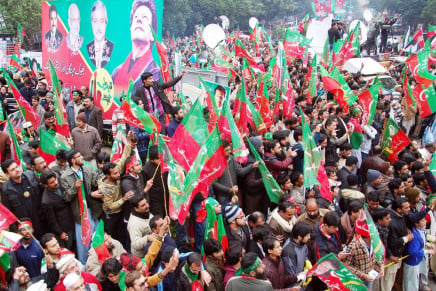PTI PROTEST TODAY

No one will be allowed to sit or gather in Islamabad. Naqvi says – PTI is determined to go ahead with its planned power show ISLAMABAD: The stage is set for a showdown between Pakistan Tehreek-e-Insaaf…
IN URDU اسلام آباد میں کسی کو دھرنے یا اجتماع کی اجازت نہیں ہوگی۔ نقوی کا کہنا ہے کہ – پی ٹی آئی اپنے منصوبہ بند پاور شو کے ساتھ آگے بڑھنے کے لیے پرعزم ہے اسلام آباد: پاکستان تحریک انصاف کے درمیان شو ڈاون کا مرحلہ تیار ہے۔
Protest Rights in a Democratic Country
Protest rights are fundamental in any democratic society, serving as a powerful expression of public opinion and a mechanism for social change. The right to protest is enshrined in democratic principles such as freedom of speech, assembly, and association, which empower citizens to voice their concerns, challenge government decisions, and demand accountability.
In a democracy, peaceful protests are not only tolerated but often encouraged as a way to engage the public in governance. They provide a platform for marginalized communities, activists, and concerned individuals to highlight injustices, promote policy changes, and raise awareness about pressing issues. Protests have historically played a pivotal role in shaping democracies, leading to landmark changes like civil rights legislation, environmental reforms, and labor protections.
However, the right to protest comes with responsibilities. Peaceful demonstration is protected under most constitutions and international human rights laws, but violence, destruction of property, or threats to public safety may lead to legal consequences. Governments, on their part, have an obligation to facilitate protests by ensuring safety, minimizing disruption, and refraining from excessive use of force.
Despite these protections, protest rights are sometimes threatened, even in democracies. Crackdowns on protesters, misuse of emergency laws, and limitations on assembly can undermine democratic values. In such cases, civil society, media, and judicial systems play a crucial role in defending these rights.
The essence of protest in a democracy is its ability to drive change peacefully. It reflects the dynamic relationship between the government and the governed, reminding leaders of their accountability to the people. By safeguarding the right to protest, democracies ensure that citizens remain active participants in the ongoing evolution of their societies.
